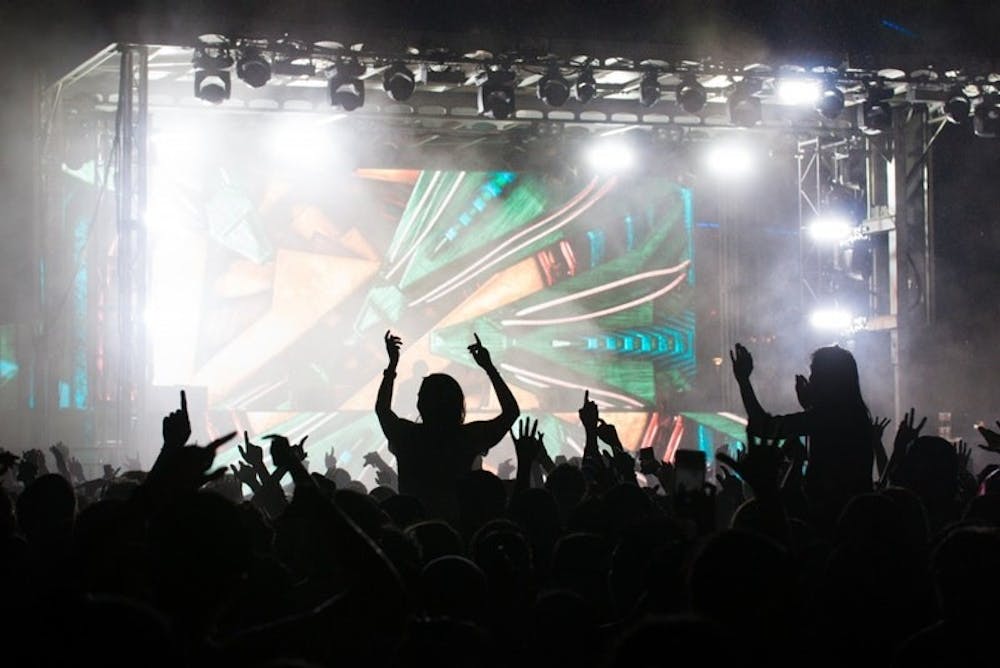Amid the frenzy of pre–Fling excitement and anticipation, dissent against Miguel's appearance has emerged in light of allegations of sexual assault against him. The past few days, I’ve been discussing with fellow students why they are choosing to attend Miguel’s performance at Spring Fling despite these allegations. Several of my classmates have told me that they believe that the whole situation has been “blown out of proportion”—that one allegation is not enough to boycott a concert or to no longer be a performer’s fan. I understand that for some, they need harder proof before they opt out of the Spring Fling concert. However, for me, one allegation is enough to walk out of the concert before Miguel takes the stage.
I cannot support him as an artist. Supporting his performance would feel to me as supporting him as a person and his actions. I do know that allegations do not inherently equal facts, but I do know how hard it is to come forward claiming to have been sexually assaulted. These are serious allegations that cannot be wished away or dismissed. I understand that it is easier to ignore these allegations so that you can enjoy a concert with a guiltless conscience. But as a survivor, I don’t have the privilege to ignore these allegations.
Supporting art created by problematic artists is an act of privilege afforded to those who have not had the misfortune of experiencing trauma. If you can watch an artist accused of sexual abuse perform while feeling at worst slightly uneasy, you're lucky. For some of us, we feel so much more than just a tinge of uneasiness. But I urge you to not ignore any discomfort you feel about supporting a possible abuser. Explore this feeling, consider what others have gone through, and be intentional with your actions.
This is not just about Miguel.
Passively accepting the music and performances of both alleged and known abusers without considering the voices of their victims is wrong. Is Xian Bass’ voice less important than Miguel’s? We live in a society where survivors' voices are still undervalued. I know that most people want to believe that the #MeToo movement has been enough, but it is not. Survivors sit in silence for years, decades, or even their whole lives.
When people come forward against abusers who hold a huge platform, they are often met with backlash—whether it be against someone with a large fanbase or a corner office. In the music industry, extremely devoted fanbases are quick to blame, and even threaten, survivors. Some fans will even hold the artist closer, taking it upon themselves to declare their loyalty in the face of perceived attacks.
While the of names of R. Kelly’s victims—Lizette Martinez, Asante McGee, Drea Kelly, to list just a few—slipped through the cracks of society, R. Kelly’s Spotify stream count spiked in the aftermath of the Surviving R. Kelly docuseries. XXXTentacion’s ascent into musical stardom occurred concurrently with a domestic violence case against him that was only thrown out due to his death. Tekashi 6ix9ine rose to fame just over a year after pleading guilty to charges stemming from a sex party involving a minor. Chris Brown is still one of the most prolific artists in R&B after pleading guilty to felony assault of Rihanna.
Today, there has been backlash against “cancel culture,” the phenomenon of people on the Internet calling to no longer support a celebrity due to their unacceptable actions. However, the successes of these artists (and countless more) prove celebrities rarely stay "cancelled," but rather gain even more support. Whether it be from media attention or fans showing the extremes of their devotion, problematic artists are empowered.
Too often in the music industry, the voices of abusers are streamed and elevated while their victims' voices are ignored. I don’t intend to equate Miguel to these known abusers; rather I want you to consider historically whose voice is too often prioritized and enabled.
I’ve been told to separate the art from the artist. I've been told that you can enjoy the art of an artist without endorsing their actions. But it's not that straightforward. Music is a form of artistic expression.
Quite often, problematic artists express problematic views in their music. It’s hard to enjoy Miguel’s lyrics “How many drinks would it take you to leave with me“ in his song “How Many Drinks?” in light of the allegation against him. Even out of context, these lyrics are clearly about taking advantage of a woman in a predatory way.
I regret that I ever had these lyrics stuck in my head.
Sometimes our favorite artists turn out to be problematic. It is tempting to just carry on and ignore court cases and controversies. But we have to consider our own values and whether while endorsing an artist, we’re endorsing their behavior too. We can't ignore the voices of survivors who are too often ignored, blamed, and vilified.
I love music. I love R&B. At one time, I loved Miguel’s songs. However, music alone is not enough for me to support problematic musicians. It’s too painful and feels too wrong for me to elevate those who may have hurt others.
I know what it’s like to not be heard, and I’m choosing to hear Xian Bass, not Miguel, this Spring Fling.

